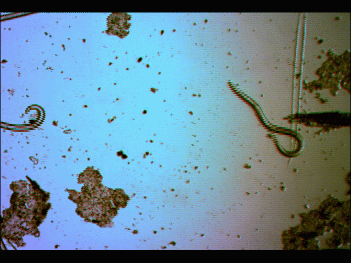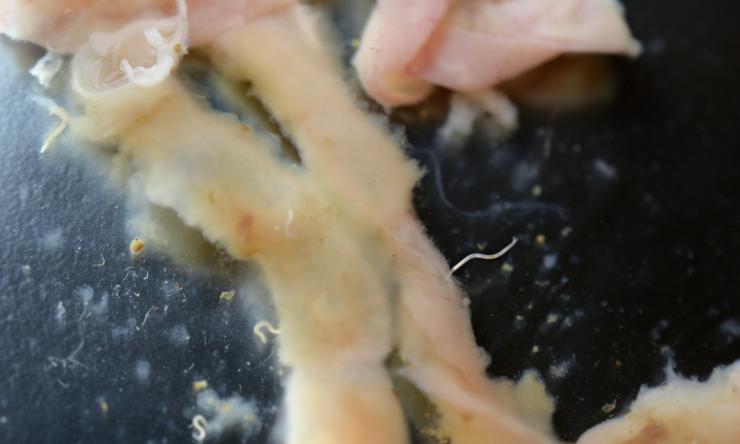Researchers at our laboratories are developing a bivalent hookworm vaccine that will provide protection against Necator americanus, an intestinal parasite that infects hundreds of millions of people worldwide. The vaccine will be comprised of two recombinant antigens, Na-GST-1 and Na-APR-1, enzymes involved in the parasite's digestion of host blood. Monovalent vaccines developed by our researchers with Na-GST-1 and Na-APR-1 as single antigens are currently undergoing various Phase 1 clinical trials. Na-GST-1 and Na-APR-1 have completed Phase 1, first-in-humans safety trials, becoming the first-ever hookworm vaccines to complete clinical trials. Na-GST-1 study record details Na-APR-1 study record details
Currently researchers at George Washington University are conducting a challenge test to determine the efficacy of Na-GST-1, infecting hookworm-naïve adults with hookworm larvae. Study record details
Other ongoing and pending safety trials:
Study of Co-administered Na-APR-1 (M74) and Na-GST-1 in Gabonese Children
Other current activities include stability testing for both Na-GST-1 and Na-APR-1.
Selected Publications
Ancylostoma Ceylanicum Feeding
Adult hookworms attached to the small intestine. Copulatory bursa visible on male on right side. Taken at Baylor Tropical Medicine laboratories.

Hookworm
Hookworm infects ~600 million people in the world and is particularly devastating to women and children, causing anemia and other sequelae including stunted physical and cognitive growth. Shown here: stage 3 hookworm larvae magnified x 300








 Credit
Credit
